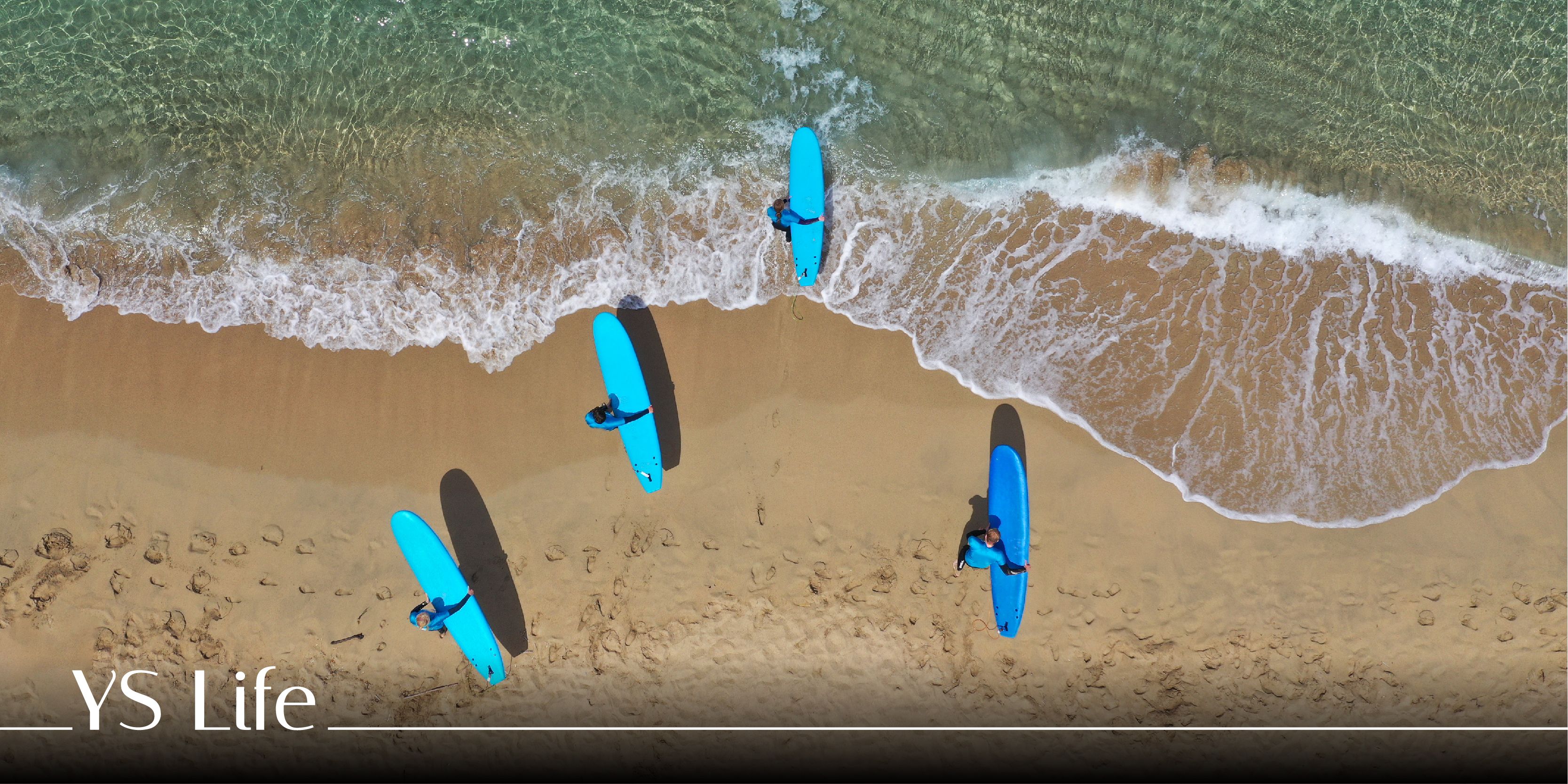Why North Devon in England is ideal for adventure activities
Stunning beaches, cliff-top coastal walks, challenging climbing routes, and surfing locations make North Devon a natural playground for outdoorsy folks.
I wake up to the sound of the sea—the waves noisily rolling in against the sand, the spray breaking on the shoreline, and the hoarse cry of the sea gull. I step out onto the balcony; it’s cold, yes; it’s the end of January after all, but neither the cold nor the darkness of the early hour matter. I can smell the salt in the air, and it puts me in a vacation frame of mind.
At the stunning art deco Saunton Sands Hotel, North Devon’s Leading luxury hotel and spa, my room affords me magnificent views of the beach that shares the hotel’s name—Saunton Sands.
The three-mile stretch of stunning golden sand, backed by UNESCO-protected Braunton Burrows Biosphere Reserve, offers some of the best waves in the UK, attracting surfers through the year. As the sky lightens, I notice a few early birds, surfboards in hand, walking into the sea known for its long, slow waves and high tidal range of 8.5m.
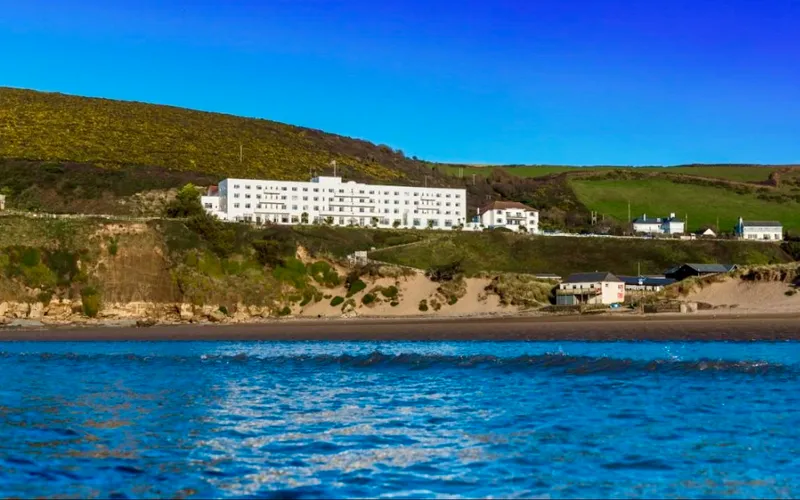
The Saunton Sands Hotel, perched atop the cliffs on the North Devon coast, offers the right dose of Vitamin Sea. Photo: Saunton Sands Hotel
At dinner the earlier night, the Brend family, which owns the hotel, shared the history of the hotel. Opened in 1933 by Sir John Christie, the hotel benefitted from the arrival of the railways and was served by the Ilfracombe line, which ran through Braunton. Since then, it has been a hotel, except for a short while during World War II when it housed the Duke of York's Royal Military School. Many years later, in 1977, Percy Brend bought the structure and refurbished it to its former glory.
The hotel, perched atop the cliffs on the North Devon coast, is loved by surfers and longboarders for the clean, consistent waves, families for hours of seaside fun, and walkers for wild dunes and its position on the South West Coast Path.
The walk can wait for I hear the best way to learn about Braunton’s adventurous connection is to visit the Museum of British Surfing. The award-winning visitor attraction helps preserve surfing heritage, with its print archives, memorabilia, and new exhibitions based on different themes in surfing culture every year.
Mark Lakeman, of Experience South West Tours, tells me that Braunton is famed as the gateway to the northern coast, and offers access to “some of the country’s best beaches and outdoor experiences”.
North Devon’s beaches are varied and many. Saunton Sands and Westward Ho! are long expansive stretches of sand that at low tide feel almost desert like. Croyde and Puttsborough offer experienced surfers the thrill of the ride and are definitely some of the best surfing beaches in the UK, he says.
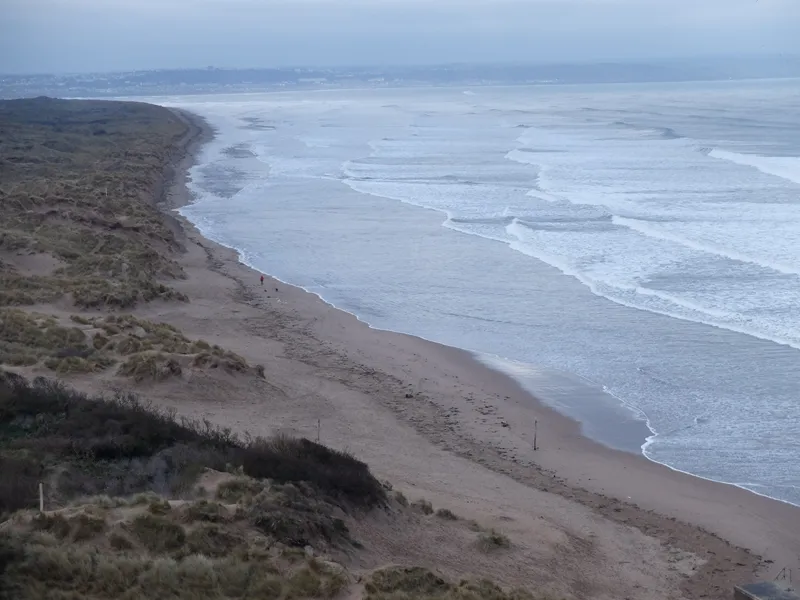
Saunton Sands Beach, a three-mile stretch of golden sand, is a surfing favourite as it offers some of the best waves in the UK. Photo: Mark Lakeman
Woolacombe offers a long expanse of sand and sea and is another surfer favourite. “It delivers the best of both, with beach-goer facilities and the consistent waves for surf schools to teach the up and coming “groms” (surfers term for young surfing kids!).”
Walkers love nearby Broad Sands in Ilfracombe, with its quiet, beautiful cove along the coastal path and shallow caves, and Woody Bay in Lynton, a spectacular beach that needs to be walked to past an old pier and a waterfall.
The Tunnels Beaches, also in Ilfracombe, is renowned for the tunnels that were created in the 1830s to separate male and female bathers. Barricane Beach, just half a mile from Woolacombe, is a Site of Special Scientific Interest and ideal for wading, paddling, and swimming.
“North Devon has hundreds of coves not easily accessible to walkers, but they are sanctuary and a place of natural immersion to kayakers and paddleboarders. You can access the water at main east to reach beaches and within minutes be in secluded, tropical like coves where people rarely set foot. A true grounding enthusiast’s haven,” Lakeman says.
Not far from Saunton Sands is the award-winning Westward Ho! Beach. But Saunton Sands—with its golden sands and blue waters, and located between the villages of Braunton and Croyde—rules the roost as far as water sports are concerned.
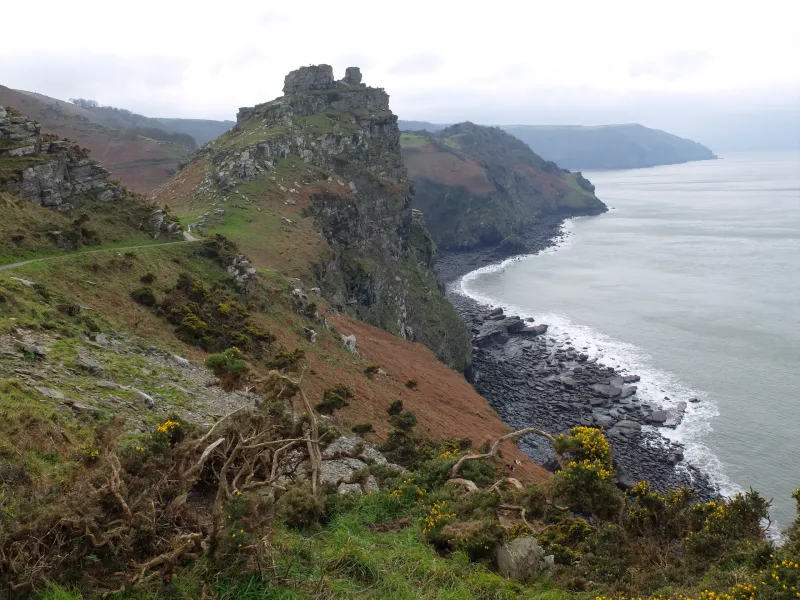
The best walks in North Devon avoid the crowds, and include clifftop coastal paths, beautiful waterfalls, and hidden bays. Photo: Mark Lakeman
North Devon caters to families on classic beach day holidays, couples seeking quieter hotels and retreats, and ‘silver surfers’ (the term given to older generations whom still ride the waves and enjoy life to the full!).
Whether you love the coast or country, Devon is the ideal outdoors destination. Apart from water sports, the area offers sublime opportunities for cycling, climbing, and hiking, and gentler exertions like rockpooling, sailing, and fishing.
Lakeman agrees that North Devon offers outdoor enthusiasts the full package—rugged and raw cliff-top coastal walking, challenging climbing routes, and UKs first surfing reserve. “Not as busy as Cornwall’s waters but equally challenging, the North Coast beaches and offer plenty to newcomers and expert surfers alike,” he says.
He adds that with Exmoor National Park split between North Devon and North Somerset, the high moorland “provides hikers with trails, mountain bikers with graded routes, and equestrian riders with open ground to gallop over”.
The popular walking trails include the South West Coastal Footpath, which offers more than 670 miles of coastal walking around the entire South West peninsula, from Minehead to Lyme Regis. The North Devon stretch is one of the most challenging, with almost alpine-like climbs in and out of old fishing communities and seaside towns such as Lynmouth, North Devon’s Little Switzerland.
There’s another trail that regularly attracts hikers—the Two Moors Way, which runs from North to South Devon and was the old fisherman’s return-home trail. Boats left South Devon, docked in the north, then the men would simply walk home. “The trail covers Exmoor and Dartmoor, and mid-Devon also. Covered over a few days, it provides a real sense of achievement and is recognised as one of the UK’s great hikes,” he says.
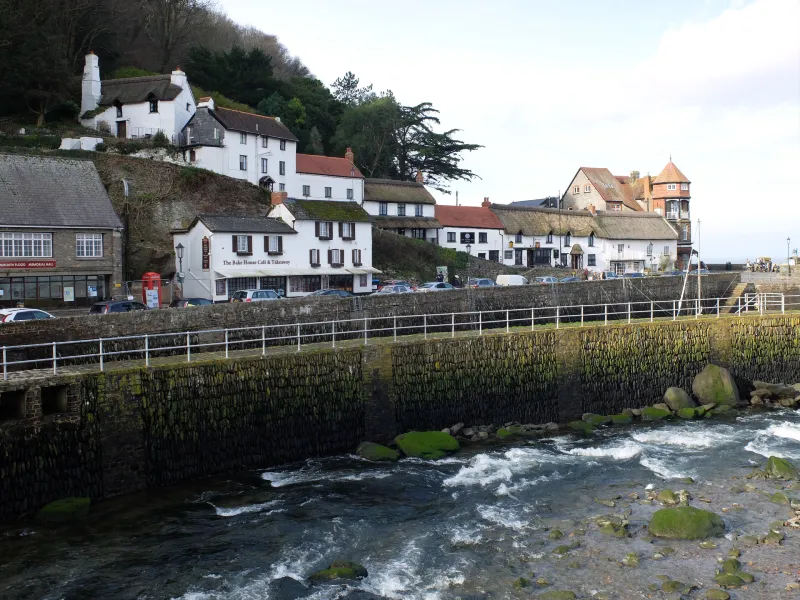
The South West Coastal Footpath touches Lynmouth, North Devon’s Little Switzerland. Photo: Mark Lakeman
But there’s also plenty to do for those who want to take things easy. The North Devon Natural Landscape offers an assortment of visual delights: scenery, landscapes, habitats, and wildlife. There’s a wide variety of sights—wild coastal cliffs, waterfalls, rocky coves, sand dunes, beaches, valleys, and villages—and cultural offerings, live music, and food options.
Braunton village sits at the base of a valley on the North Devon coast, six miles from the region’s commercial and administrative centre of Barnstaple. It’s often called the largest village in England, which is true only on account of the fact that it has the highest population of all villages in England (10,000 residents).
The beautiful village has traditionally grown on the back of farming, fishing, and shipping. One of the busiest villages in Devon, due to its prime location between Barnstaple and the sandy, surfer haven beaches of Saunton, Croyde and Woolacombe, it allows the chance to explore Braunton Burrows, a vast and complex dune system located between Saunton Sands beach and the rural farmland surrounding Braunton. The whole area is protected as a UNESCO-designated Biosphere Reserve due to the rarity of the plant and insect life that inhabits it.
That night, back in my hotel room, I hear the sound of the sea once again. The whoosh of the waves, the billowing of the wind, and the continual ebb and flow of water. The sea may provide a playground by day, but it offers the most perfect lullaby by night.
Edited by Megha Reddy






